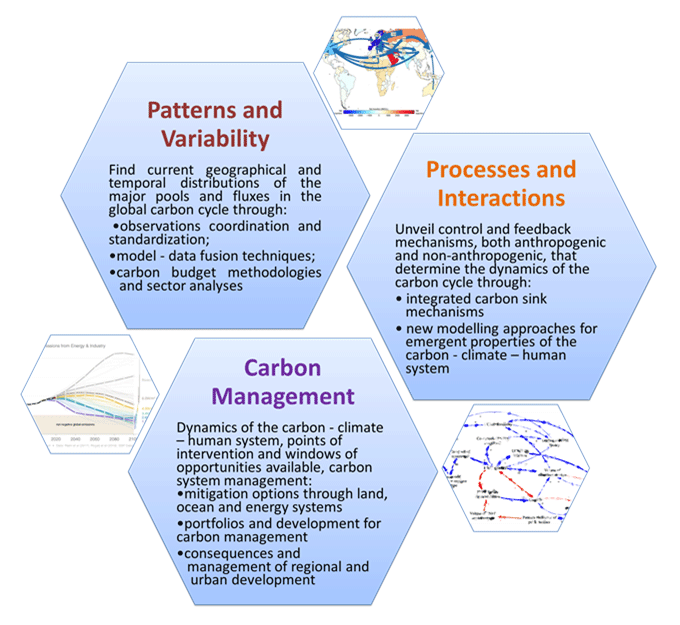What is the Global Carbon Project?
The Global Carbon Project (GCP) is a Global Research Project of Future Earth and a research partner of the World Climate Research Programme (WCRP). The GCP has a key mandate to develop a comprehensive, policy-relevant understanding of the global carbon cycle, encompassing natural and human dimensions and their interactions. This international research collaboration was established in 2001 within the framework of the Earth Systems Science Partnership (ESSP) which subsequently evolved into Future Earth. (For more details see the main GCP website).
The GCP’s aim is to develop the knowledge required for responding effectively to the risks and opportunities of global environmental change and for supporting transformation towards global sustainability in the coming decades. Its three key scientific contributions are Pattern and variability, Process and Interactions, and Carbon Management (Fig. 1)
International Project Offices (IPOs)
GCP has two International Project Offices hosted by the Commonwealth Scientific and Industrial Research Organisation (CSIRO) in Canberra (Australia) and the National Institute for Environmental Studies (NIES) in Tsukuba (Japan). It also has the Global Carbon Budget Office (GCBO) hosted by the University of Exeter in the United Kingdom.
In addition, it has two affiliate offices in Beijing and Seoul and supporting offices in Jena (CarboEurope at Max Planck Institute, Germany), Washington DC (US Global Change Research Program), and Paris (Advisory Panel on Ocean CO2 at UNESCO).
GCP Tsukuba International Office
The GCP Tsukuba International Office was established in 2004 as part of the Center for Global Environmental Research (CGER) at NIES. The Tsukuba international project office has been primarily responsible for GCP’s urban carbon management activities and other related projects (e.g. URCM, and MaGNET initiatives). It also provides support for the group’s research collaboration and its outreach activities, which include public lectures, scientific discussions, and press releases especially in Asia, such as Japan and beyond.



